Documenting a Living Tradition: The 9 Emperor Gods Festival
A Glimpse into Tradition: Uncovering The 9 Emperor Gods Festival
 |
by ICCS Team | Tuesday, 27 October 2023 | ||||
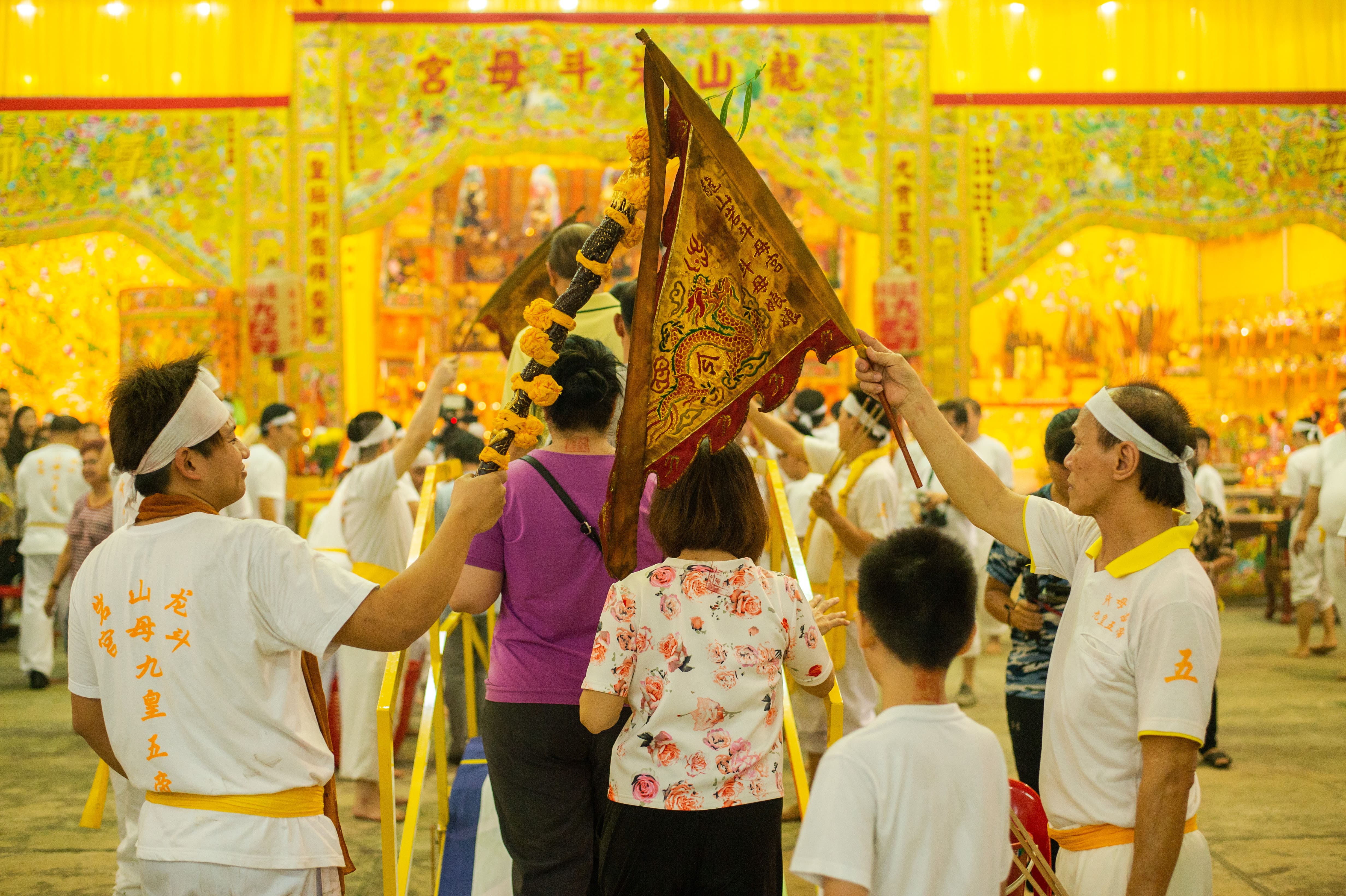
In the culturally diverse landscape of Singapore, traditions intertwine with modernity, creating a vibrant tapestry of celebrations. The Nine Emperor Gods Festival is a prime example of how Singapore embraces its rich heritage while adapting to the dynamics of the present day. To delve into the heart of this celebration, we’ve had the privilege of speaking with 2 members of the festival’s documentation team: Assistant Professor Koh Keng We, a dedicated assistant professor at Nanyang Technological University (NTU), and Esmond Soh, his former student, now a historian with a deep passion for Chinese religion and society. Their stories not only provide insight into the festival’s significance but also inspire us to explore and preserve the cultural treasures within our own communities.
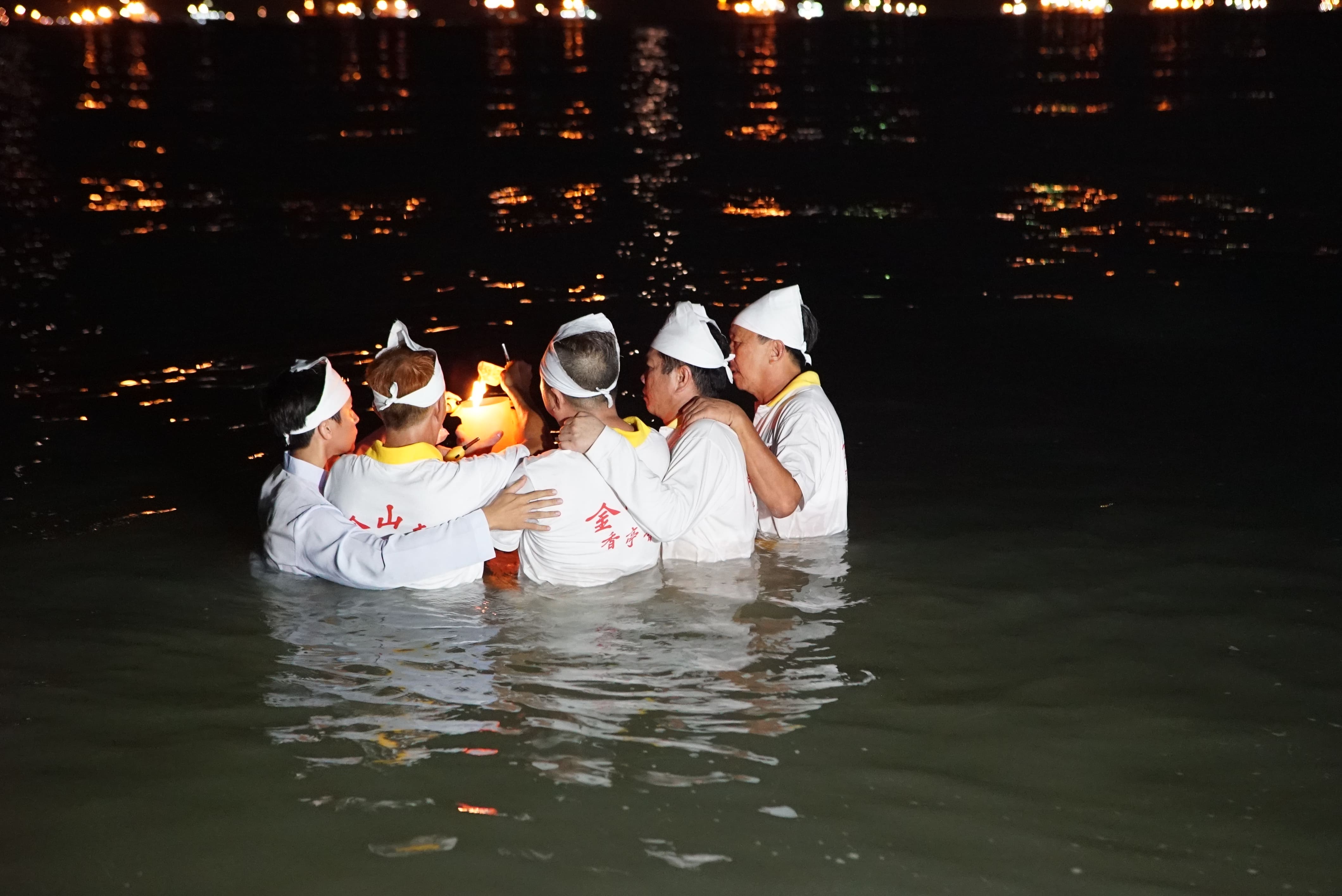
A Lifelong Promise
Prof Koh’s fascination with the Nine Emperor Gods Festival was ignited in his childhood when he followed his grandparents and parents to the festival. His grandfather, deeply connected to a Nine Emperor Gods temple, played a significant role in shaping his interest in Chinese religion. He embarked on his academic career with a focus on temples and Chinese religion, conducting research on the festival at the National University of Singapore (NUS). He made a promise to compile a book on the festival, a promise he fulfilled 25 years later when the NHB Heritage and Research Division launched its first Heritage Research Grant in 2014.
Through collaboration with colleagues, graduate students, and various temples, the book on the Nine Emperor Gods Festival in Singapore became a joint effort, reflecting the profound dedication of all involved.
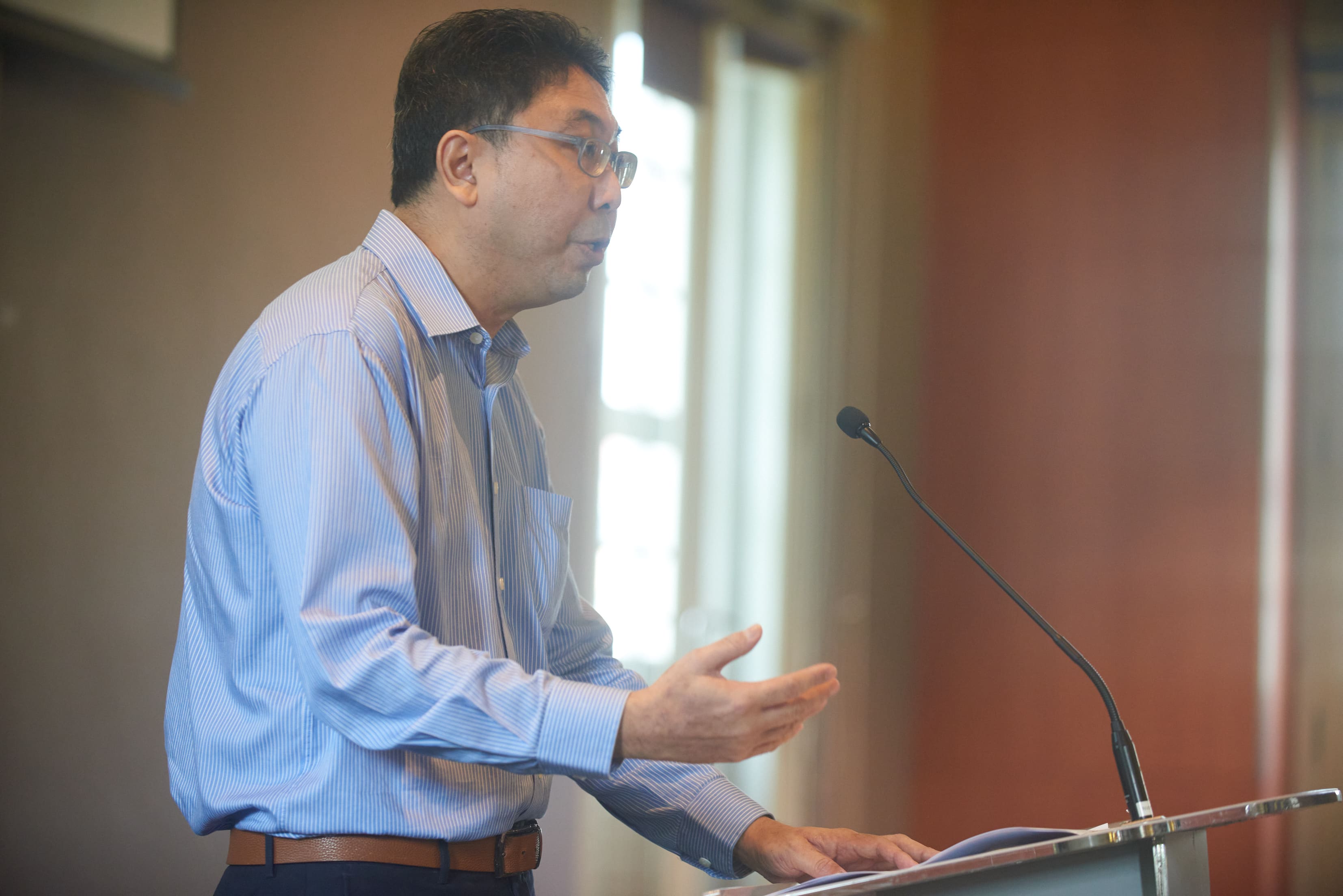
Modernising Tradition
Prof Koh notes that the festival has evolved over time to adapt to the changing cultural and social dynamics of Singapore.
“The processes of urban renewal, educational change and economic development have resulted in the transformation of Singapore society, with the moving of older kampong communities into new HDB estates in the vicinity and all over the island, the growth of Mandarin and English as the main languages of communication, the rise of new places for building community such as schools, the workplace, and community centres and clubs and other new grassroots organisations.”
However, for many of the Nine Emperor Gods temples, the older kampong (village) community ties have remained crucial. “They continue to draw on the older kampong communities and networks, and their descendants, even if they have dispersed around the island,” Prof Koh noted. Some temples continue to emphasise these community ties by visiting the old sites of the temple during processions, or visiting stations set up by members of these communities to welcome the Nine Emperor Gods in their new residential areas.
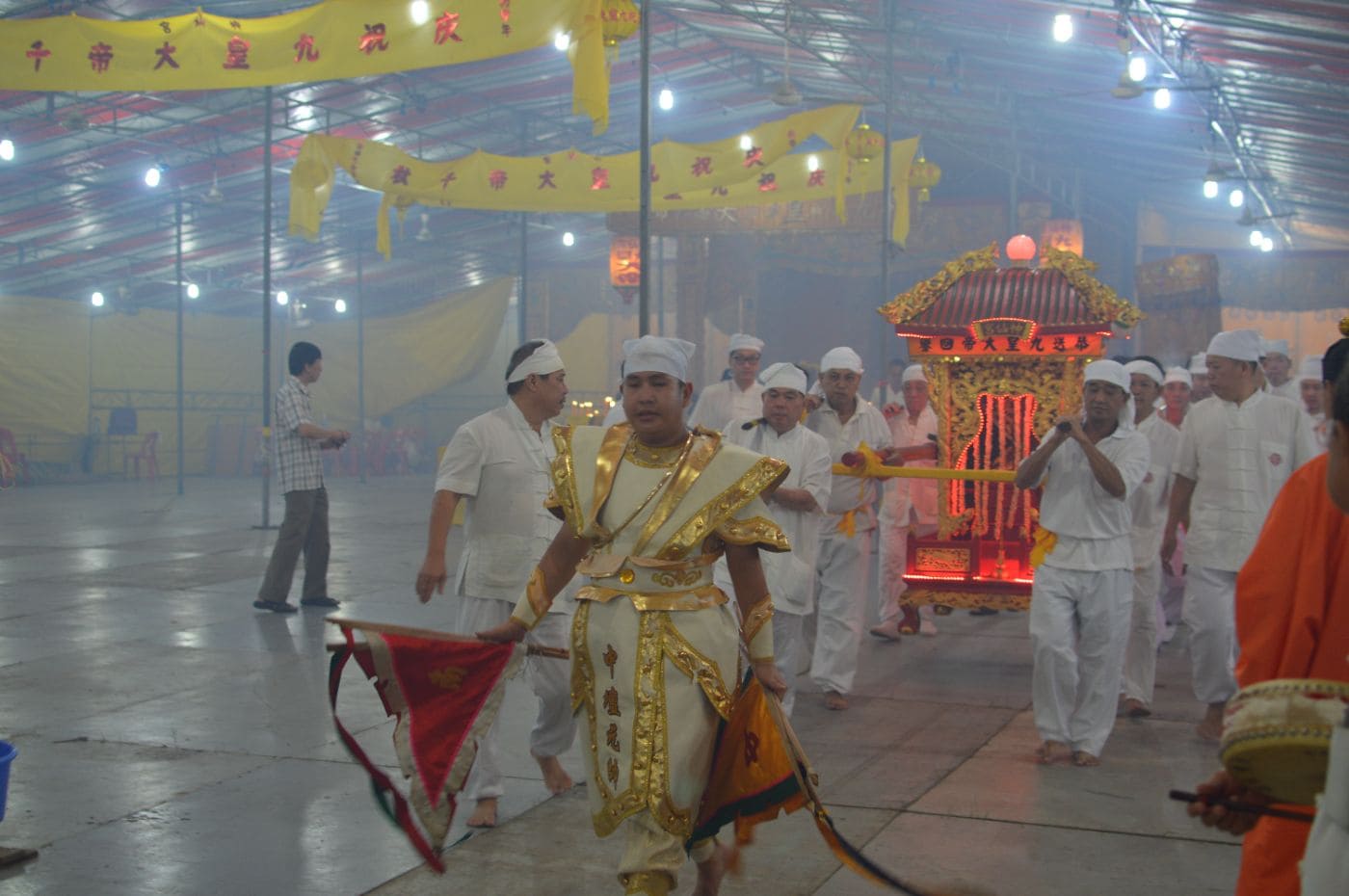
As part of the modernisation, the festival has also incorporated new technologies, such as digital tools, into various aspects of the celebration, from decoration to event management. Yet, the core of the festival, its rituals, and their significance, remain unchanged.
A Personal Connection to Tradition
For Esmond, his journey began with a personal connection to Chinese religion. Inspired by his grandparents’ unwavering devotion to Guanyin, his passion deepened as he explored temples and immersed himself in religious literature. What sets his story apart is the profound connection he felt with the Nine Emperor Gods, dating back to his days in Junior College when he worshipped them privately, adhering to a vegetarian diet and reciting scriptures.
However, it was this documentation project that truly allowed Esmond to merge his personal interest in the religious aspects of the festival with its rich socio-cultural history. This endeavour opened up a multidisciplinary approach, enabling him to delve into the festival’s social and cultural significance, particularly within some of Singapore’s older temples. These temples, he discovered, played an instrumental role in fostering a sense of communal religion that still thrives today.
Uniting Communities Beyond the Temples
Prof Koh emphasises the religious and spiritual significance of the festival. He notes that “the rituals and observances embodied in the receiving and sending-off ceremonies […] and the processions in the streets and neighbourhoods during the Nine Emperor Gods Festival, are all core to the religious and spiritual significance of the festival. This can be seen not only in Singapore but also throughout Southeast Asia.” The festival doesn’t stop at temple walls; it reaches out to touch the wider Singaporean society, fostering a sense of belonging that transcends boundaries.
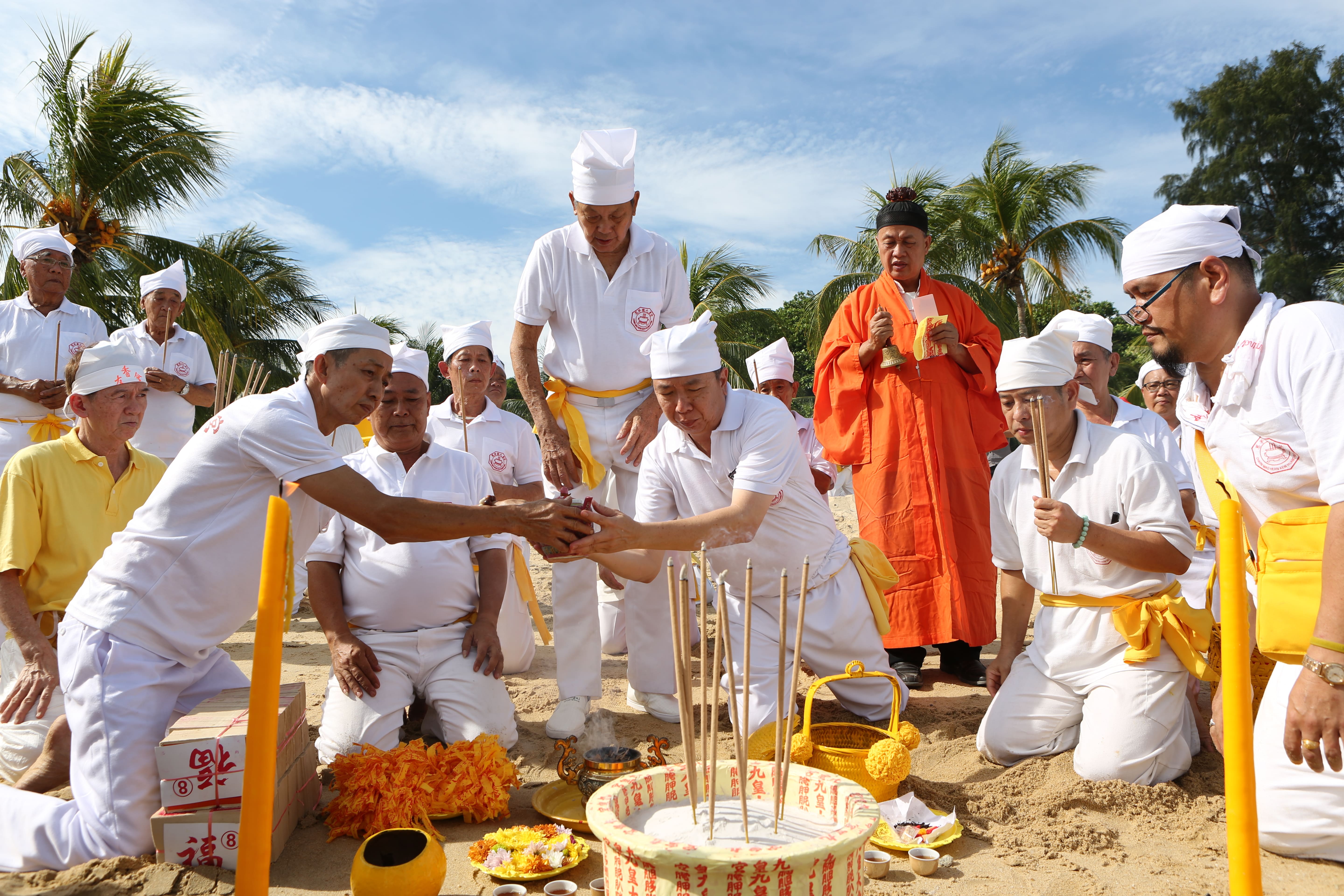
“What sets this festival apart,” says Esmond, who vividly recalls a moment of community building in the young Nine Emperor Gods temple, Zhun Ti Tang, “is how friends and family actively contribute their contacts, resources, manpower, supplies, and financial support to make the festival truly meaningful. […] the festival transcends conventional boundaries like age, gender, and occupation.” The festival becomes a unifying force that erases these barriers.
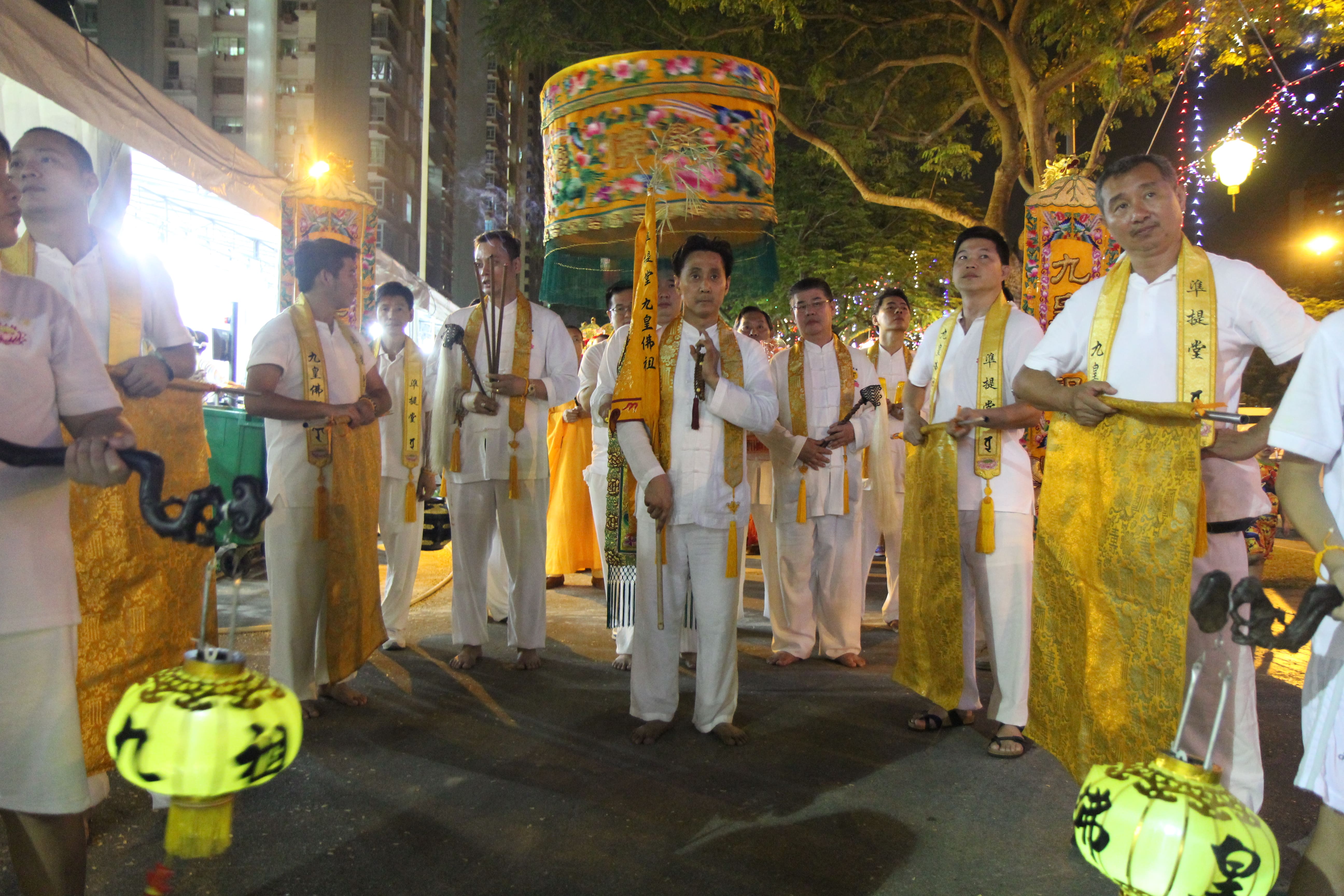
Esmond’s reflections on the festival highlight its potential as “a powerful cultural and social force, bringing people together in various ways.” These sacred spaces serve as more than just places of worship; they are vibrant hubs where people come together to celebrate their shared heritage and spirituality.
Furthermore, as noted by Prof Koh, the festival has seen “a growing number of participants from other ethnic communities which have resulted in the strengthening of social harmony across ethnicities and cultures.” The Nine Emperor Gods Festival acts as a bridge, transcending the confines of the temple’s walls, connecting individuals from diverse backgrounds, fostering mutual understanding, and promoting unity.
Navigating Challenges and Embracing Adaptability
Working on the Nine Emperor Gods Project was indeed an extraordinary journey, filled with numerous trials and tribulations. Esmond notes that one of the most significant challenges they faced was “navigating the uncharted waters of the COVID-19 pandemic.” Fieldwork, a cornerstone of their research, became an endeavour fraught with limitations.
Esmond explains, “During the pandemic, the usual avenues for our fieldwork, which spanned across Singapore, Thailand, and Malaysia, were dramatically restricted. This demanded a fundamental shift in our approach.” They embraced the digital realm, engaging in digital ethnography to ensure they could continue collecting the vital data necessary for their project. This shift, although unanticipated, ultimately led them to new and unexplored facets of the festival, shedding light on the role of technology in preserving and sharing cultural traditions.
Moreover, Esmond emphasises, “Our research underscored a powerful theme— the malleability and adaptability of religion, culture, traditions, and values over time.” It became evident that cultural heritage, including the Nine Emperor Gods Festival, is not static but continually evolving.
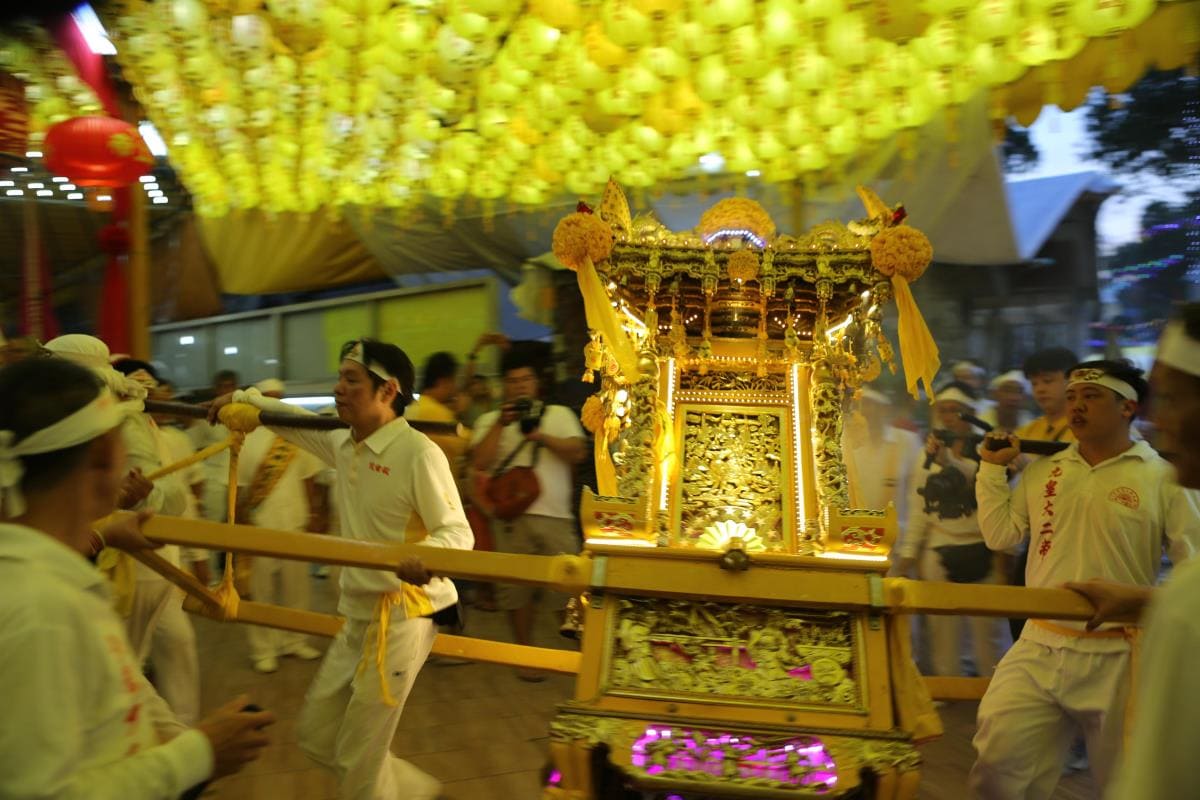
Esmond observes, “Younger individuals, in particular, are drawn to various aspects of cultural heritage for diverse reasons, often influenced by familial connections.” As exemplified by the devotees of temples like Choa Chu Kang Tao Bu Keng and Kew Huang Keng, the festival continues to resonate with new generations. This dynamic nature of tradition is a testament to its resilience and the enduring significance it holds within the community.
Preserving Cultural Heritage
In the midst of the vibrant processions, the incense-filled temples, and the timeless rituals, the Nine Emperor Gods Festival emerges as a living testament to the power of tradition in uniting communities, celebrating diversity, and embracing the richness of cultural heritage.
In a world where cultural heritage is often at risk, their journeys remind us that we can become torchbearers for preserving our own cultural treasures. We can all embark on similar journeys, documenting and celebrating the richness of our communities, and finding new ways to unite people through tradition, culture, and shared experiences.
As we’ve witnessed the enthralling journeys of Esmond and Professor Koh, we invite you to embark on your own quest to explore the cultural treasures within your community. The stories and experiences you uncover will not only enrich your understanding, but also strengthen the bonds that unite us. Discover the detailed accounts of the Nine Emperor Gods Festival and its events in 15 temples across the island, along with the significance and historical contexts of the diverse traditions and rituals that make it unique. To embark on this cultural voyage, visit: The Nine Emperor Gods Festival in Singapore - Heritage, Culture, and Community.

